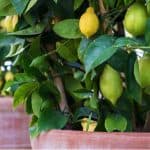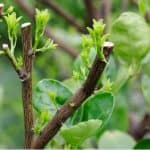Last updated on April 5th, 2022
Our site is reader supported, this means we may earn a small commission from Amazon and other affiliates when you buy through links on our site.
If you choose to grow citrus trees in pots, you will have a much more successful go of things because you have the flexibility to control the environment, add extra protection when the weather drops, and bring them inside over winter. Of course, it’s just as important to choose the right type of citrus tree for your containers because not all varieties are ideal.
In most cases, you will want to find a dwarf variety because these won’t grow as tall, that being said, as we tend to grow them in containers in the UK, this does restrict the growth which means we do have a good choice of citrus to choose from. You wouldn’t have the same amount of choice if you are growing them in the ground in a warmer climate.
Below we go over some of our favourite citrus trees to grow, starting with a lesser-known but well worth considering citrus, called the Kumquat.
Learn how to grow citrus in pots and containers
1. Citrus Kumquats
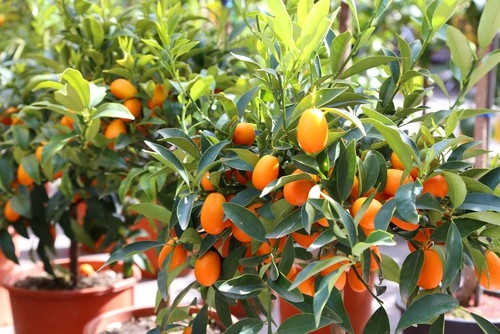
Kumquats produce fruit that looks very similar to oranges, but it’s actually a smaller fruit and you don’t need to peel the skin. You can eat the entire thing, which is not the case with nearly all other citrus trees, and they are perfect for growing as houseplants too. The skin is very sweet and the inside is very tart.
The nice thing about Kumquats is that you don’t have to choose a dwarf variety. All of the Kumquat trees are naturally short. They are also some of the most cold-resistant and can maintain production when temperatures drop below 7°C at night and can even tolerate -12°C for a short amount of time, although we don’t advise doing this.
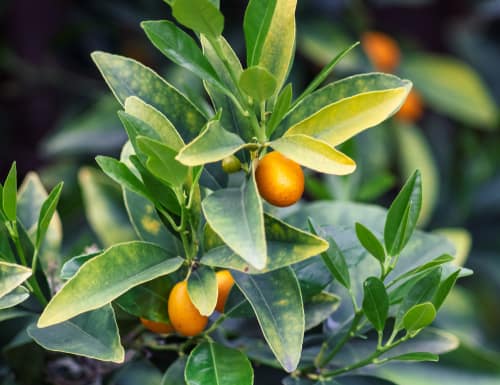
Recommended Kumquat varieties:
- ‘Fukushu’ is a thornless tree with sweeter than normal fruit.
- ‘Meiwa’ is an almost thornless variety that is the least seedy, has the sweetest flavour and is a popular choice for eating.
- ‘Tavares Limequat’ is a unique breed between a Mexican lime and a Kumquat. A more compact tree that doesn’t reach more than two metres at full maturity and an even smaller height in containers.
2. Citrus Lemon Trees
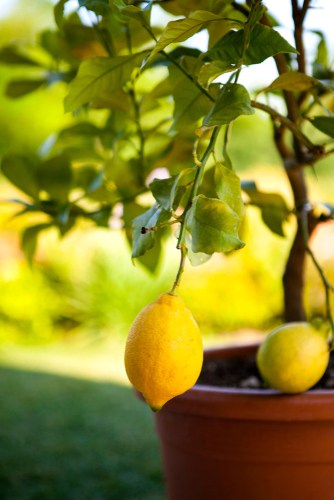
Lemons are a wonderful choice for container growing and they are a popular choice. They will produce fruit all year round if given the right conditions. There are plenty of dwarf varieties such as the ‘Meyer’ Lemon out there that are much smaller so you can grow them no matter what climate or space you have available.
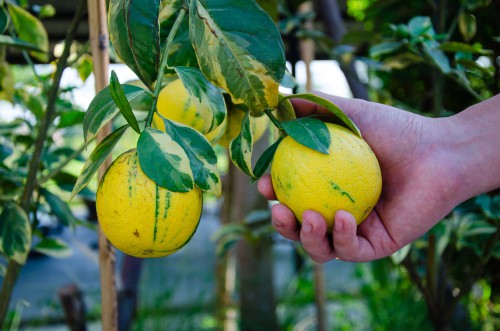
Recommended Lemon Varieties:
- ‘Improved Meyer’ is a container-based variety that grows well and is disease-free. The fruit produced is sweeter than most Lemons with thinner skin because it’s actually a hybrid between an orange and a lemon. It’s good for you to bring these indoors during the winter.
- ‘Lemon Variegated Pink’ is a variety with variegated leaves and striped markings on the fruit for those looking for something a little different.
3. Citrus Mandarins and Calamondins
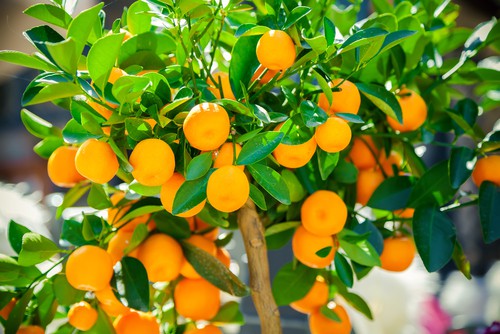
Mandarins grow quite well in pots. They produce more fruit than oranges and most of the fruit they produce is seedless and very easy to peel. The flavours are often sweet. They are easy to maintain and containers because they don’t grow more than two or three metres in height but this height is even smaller in containers where root growth is restricted. They prefer full sun and warmth and need protection against colder winter weather.
Recommended Mandarin Varieties:
- Clementines are a hybrid of Mandarin oranges that are sweeter and taste very juicy.
- Tangerines are another hybrid that is sweet but slightly more tart in their flavour than Clementines.
- Calamondins have very small fruit and are one of the most popular, although you can eat the fruit, they are usually used more as an ornamental houseplant.
4. Citrus Orange Trees
Oranges need hotter summers to produce fruits. They won’t do as well in coastal areas unless they are in an area that has a warm summer, which is usually further south. Oranges can be more difficult to get to fruit so this is usually worth trying after you have gained some experience with other citrus trees first.
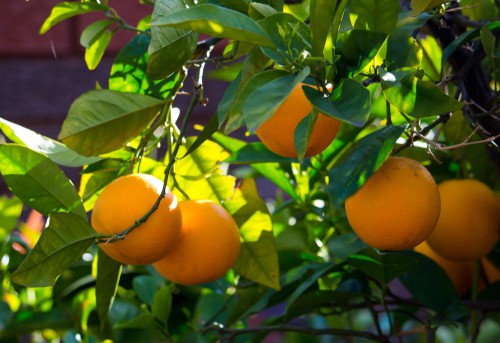
Recommended Orange Varieties:
- ‘Washington’ and ‘Robertson’ are two varieties of navel oranges that are almost exactly the same, with the key exception that the ‘Robertson’ variety produces fruit 2 weeks earlier.
- ‘Tarocco’ is a blood orange that has a more complex flavour boasting raspberry overtones.
5. Citrus Sweet Limes Trees
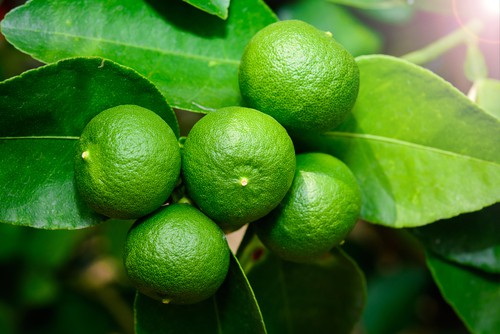
Sweet lime trees are simple to grow in containers. They come from the Asia Pacific and as such are very popular for their juice, their flavours as well as the fragrance the trees offer. They prefer sunny conditions with mild winters and warm summers, very similar to oranges.
Recommended Lime Varieties:
- ‘Indian Sweet’ limes are a variety that reaches no more than two metres in height which make them perfect for containers.
The Citrus varieties you choose to grow are usually self-fertile and this means you don’t need more than one. You can grow a single tree in a single container and be just fine.
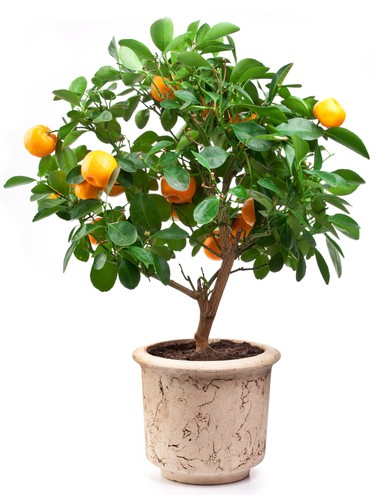
Choosing the Right Pot
No matter which citrus plant you choose make sure that the container is at least 25% to 50% larger than the root ball of the tree. Every 3 years on average it will outgrow its container and need to be repotted, at which point you should select another container that again falls under this 25% to 50% rule. We recommend getting citrus compost or using John Innes potting compost and mixing it with 25% horticultural grit to improve drainage.
Last update on 2025-04-19 / Affiliate links / Images from Amazon Product Advertising API








